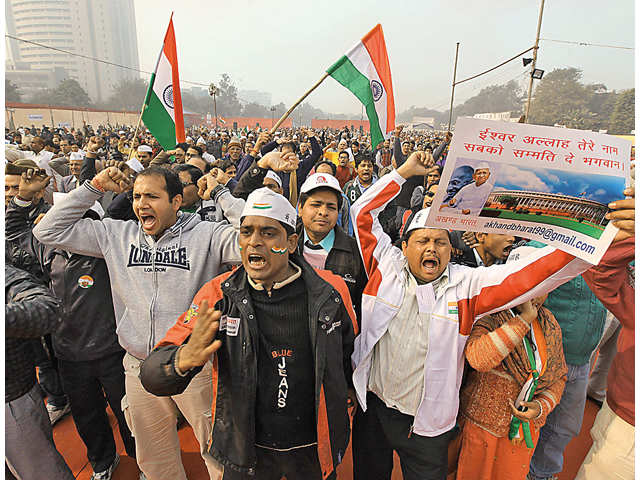Abstract
Protests are essential to democratic expression because they can spark change, influence laws, and alter political environments. Using well-established theoretical frameworks like Social Movement Theory and Policy Process Theory, this study explores the complex relationship between demonstrations, policy, and politics. Through an analysis of historical viewpoints, case studies of significant protests, and current instances, the paper sheds light on the complex role that protesters play in shaping political dynamics and policy change. It explains the obstacles and constraints faced by protest movements, such as co-optation by political players and repression from authorities, and investigates how protests impact policy decisions. It also identifies success factors for bringing about policy change through protests. The study also examines how foreign countries have shaped India’s political landscape and demonstrations, illuminating the challenges of managing outside influences in domestic affairs. In the end, this research offers insights that guide conversations on democratic governance, social activism, and political mobilization in modern cultures, contributing to a comprehensive understanding of the relationship between demonstrations, policy, and politics.
Introduction
Modern societies are fundamentally shaped by the interconnected aspects of protest, policy, and politics, which influence public discourse, governance, and social transformation. Protests have always been an essential means of voicing disagreement, defending rights, and challenging established hierarchies of power. Protests have played a crucial role in furthering democratic principles and enacting legislative changes, from environmental activism to civil rights campaigns. Protest and policy, however, have a complex relationship that is frequently characterized by conflicts and discussions between activists, decision-makers, and political institutions. It is critical to understand the dynamics of protest, policy, and politics in light of the rise in social mobilization and political polarization. Globally, there has been a rise of large-scale protests in recent years, driven by complaints over everything from environmental degradation to economic inequality. These actions sparked considering the ability of protests to influence significant policy changes and how political elites and governments react to public demands. Likewise, the dynamics of protest movements have changed as a result of the rapidly mobilizing nature of digital communication and social media, which has highlighted voices that were previously marginalized. Policymakers are struggling to respond to the demands of various protest movements in this climate while preserving political legitimacy and stability.
To provide a thorough understanding of the complex relationships that exist between protest, policy, and politics, as well as their implications for social movements and governance, this paper aims to analyze these relationships. This research attempts to clarify the processes by which protests impact policy outcomes and shape policy through an examination of theoretical frameworks, empirical case studies, and policy implications and the setting of politics. It examines political institutions’ reactions to protests critically, taking into account elements like pressure, repression, and concession as well as their consequences for democratic governance and social transformation.
Literature Review
The literature has focused on the nexus of politics, policy, and protest, which reflects the dynamic interaction between social movements and governing bodies. Scholars have studied many aspects of protest movements, their impact on legislative outcomes, and the larger political implications of citizen involvement within this diverse discipline. The literature investigates how protest movements impact political agendas and decision-making procedures. The notion of resource mobilization has played a crucial role in understanding how social movements utilize resources, including finance, media attention, and organizational ability, to raise their voices and create influence over politicians. Research has indicated that to mobilize support for policy change, collective action framing and strategic mobilization methods are necessary. Protest movements can be enabled or restricted by institutional settings and political alignments. The shifts in public opinion, electoral cycles, and political institutions can provide windows of opportunity for social movements to push their policy objectives. The literature explores how protest movements impact the formulation of public policy. Research has shown how important it is for protests to raise public awareness and media attention to put issues on the political agenda and force decision-makers to act. It has also highlighted how disruptive strategies like strikes, protests, and civil disobedience can exert pressure on decision-makers to make significant policy changes. The rise of social media has changed the protest political setting by opening up new channels for advocacy and mobilization. The research also recognizes the difficulties and constraints that protest-based campaigning has in bringing about permanent policy change. Looking it up, a wide range of theoretical approaches, empirical research, and critical analyses of the dynamics of citizen activism and governance are provided by the literature on protest, policy, and politics. Through the examination of the complex connections among social movements, policy procedures, and political establishments, researchers made progress in recognizing how group efforts mold the features of democratic administration and promote changes in society.
Theoretical framework
Understanding the structure of politics, protest, and policy is crucial for assessing and resolving social issues in public policy research. Citizens can express their dissatisfaction and advocate for change through protest, which frequently sparks policy debates and has a significant impact on decision-makers. On the other hand, policies are the planned solutions and strategies that people, groups, and governments use to solve problems ranging from equity in society to economic development. The direction and results of governance are determined by a combination of conflicting interests, views, and relationships of power that constitute the larger political environment in which these policies are developed and debated. Through analyzing the relationship between protest, policy, and politics, scholars can acquire a better understanding of how social change happens, find challenges to the efficient implementation of policies, and look into ways to promote more responsive and inclusive decision-making processes.
Click Here To Download The Paper


📌Analysis of Bills and Acts
📌 Summary of Reports from Government Agencies
📌 Analysis of Election Manifestos

